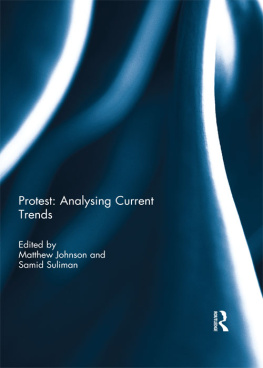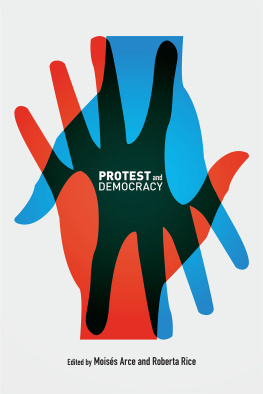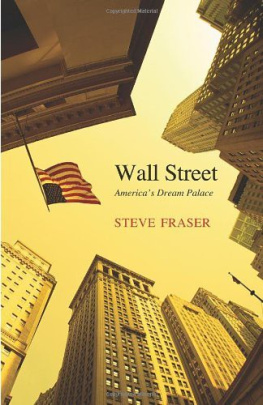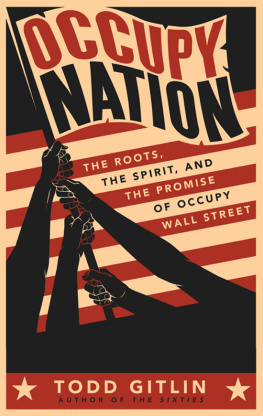All rights reserved. You may not copy, store, distribute, transmit, reproduce or otherwise make available this publication (or any part of it) in any form, or by any means (electronic, digital, optical, mechanical, photocopying, recording or otherwise), without the prior written permission of the publisher. Any person who does any unauthorized act in relation to this publication may be liable to criminal prosecution and civil claims for damages.
A CIP catalogue record for this book is available from the British Library.
Every reasonable effort has been made to acknowledge all copyright holders. Any errors or omissions that may have occurred are inadvertent, and anyone with any copyright queries is invited to write to the publisher, so that full acknowledgement may be included in subsequent editions of the work.
She showed us you can be small and still be a giant.
I have no symptoms, I have opinions.
Your opinions are your symptoms. Your disease is dissent.

Prague, Czechoslovakia, November 1989. Riding to the Velvet Revolution. Mass protests (and jangled keys) ended forty years of one-party rule in just a week (see ). Photo by Steve Crawshaw.
CONTENTS

Chengdu, China, August 2009. The artist Ai Weiweis determination to document the thousands who died in the Sichuan earthquake due to shoddy and corrupt construction methods infuriated the authorities, who came knocking on the door at 3 a.m. Ai Weiwei was severely beaten (and later hospitalized). While under arrest in the elevator, he took this photograph, and shared the image with the world.
Never retreat. Retweet.
AI WEIWEI
When a totalitarian society faces creative protests, it is like ice meeting fire. Authoritarian rule is serious and incapable of humour. It exercises strict control over thoughts, to prevent the rise of ideas other than its own. There is no room for communication or negotiation, because otherwise it would lose ground. Often we see protests held for legitimate reasons, yet executed with a lack of creativity. Only art and creative acts can resolve the repressive power of an authoritarian regime. They are efficient, human, and intelligent.
Change is not a matter of belief. It is as inevitable as evolution. Over the centuries, human history has been impressive with its constant change. The only surprise is that the changes keep happening, faster and faster. They are beyond our prediction. The question is not whether changes will happen or not. Change can happen at any time, anywhere. It is happening now.
Street Spirit is a relevant and powerful book for our times. It collects the possibilities of change, as well as the emotions, expressions and languages within. No matter what kind of society we live in, it takes the individual to rebel and exercise civil disobedience for those in power to recognize public concerns. The only effective expression for protest is creative expression.
It is always easy to find explanations for why it is futile to take action, and why those who seek change are misguided dreamers. The US Ambassador to Egypt was by no means alone when in December 2008 in a secret cable, later revealed by WikiLeaks she informed her colleagues in Washington that those in Egypt who hoped non-violent protest might unseat the corrupt and brutal government of President Hosni Mubarak by 2011 were highly unrealistic.
Two years later, a now historic Facebook post served as an indirect riposte to Ambassador Margaret Scobey and her dismissive conclusion. On 18 January 2011, Asmaa Mahfouz, one of the leaders of the 6 April Youth Movement that the ambassador had been so unimpressed by, sat down in her apartment and recorded a message to her fellow Egyptians.
Mahfouz spoke for four passionate, uninterrupted minutes. Im making this video message to give you one simple message, she declared. We want to go down to Tahrir Square on 25 January ... Well go down and demand our rights, our fundamental human rights.
Mahfouz addressed head-on the perception that change in Mubaraks Egypt was unachievable. Whoever says it is not worth it because there will only be a handful of people, I want to tell him, You are the reason for this, the twenty-six-year-old said. Sitting at home and just watching us on the news or Facebook leads to our humiliation.
On Facebook and YouTube, Mahfouzs video went viral and Egyptians did not sit at home. On 25 January and in the days that followed, millions poured on to the streets of Cairo and across Egypt. President Mubarak, who had held so tightly to power for thirty years, resigned after eighteen days of protests.
In the years since then, the news from Egypt has often seemed bleak. In President Abdel Fattah al-Sisis Egypt, those who speak up for basic rights again face threats to life and liberty. But Egyptian novelist Ahdaf Soueif, remembering back to what she calls Egypts eighteen golden days, has argued that the story is not yet over.
There is a core, a resolute core that does not lose sight of the aims of the revolution bread, freedom, social justice and what those bring of human dignity; that knows that the people even if they digress onto a side street will return to insist on their original path and their essential aims.
Hossam Bahgat, a human rights activist, describes the regime as brutal, and at the same time shaky. In short, the ending is not yet written.

Tahrir Square, Cairo, 11 February 2011. After eighteen days of protests, finally the announcement: In these difficult circumstances President Hosni Mubarak has decided to leave the position of the presidency.

There was nothing unusual about Ambassador Scobeys unwillingness to believe that non-violent protest could unseat a powerful, unloved leader. The reluctance by self-described realists to accept the possibilities of change has been a constant throughout history. But again and again, the realists have been trumped by those who challenge existing realities. The courage of those who seek a better and more just world has regularly defied certainties that seem set in stone.
Nobel Prize-winning author Czesaw Miosz identified one reason why sceptics sometimes get it wrong. Our natural tendency to place the possible in the past, he wrote, means that we often overlook the acts of our contemporaries, who defy the presumably unmovable order of things and thus achieve what has at first seemed impossible.
It was when I was living in Mioszs native Poland in 1980 that I first saw the unmovable order of things turned upside down. When strikes began in the Polish shipyards in August of that year, the economic demands quickly escalated to include the creation of a free trade union. Western commentators insisted that such demands were unachievable within the context of the Soviet-imposed system, in place since 1945.

















